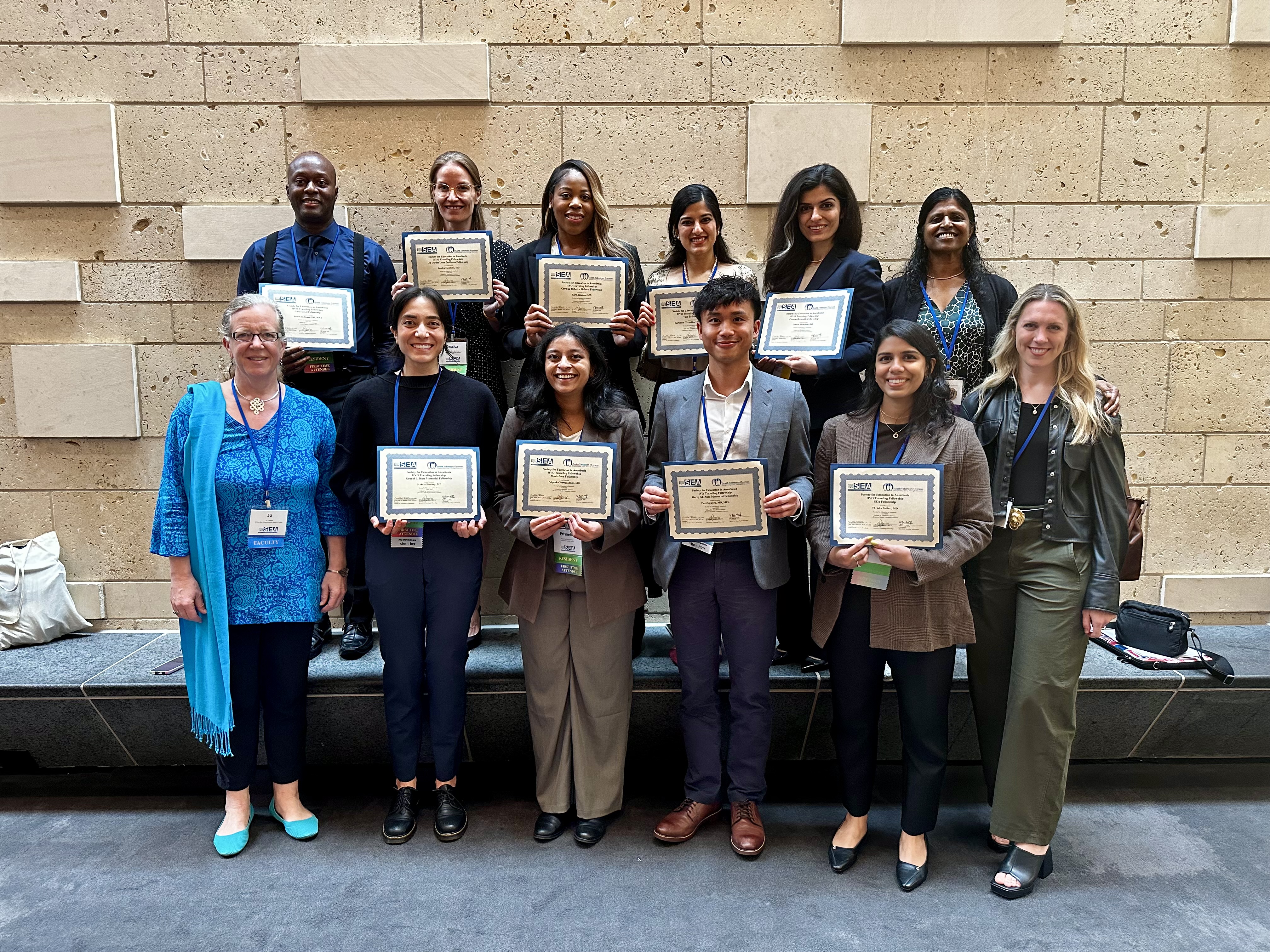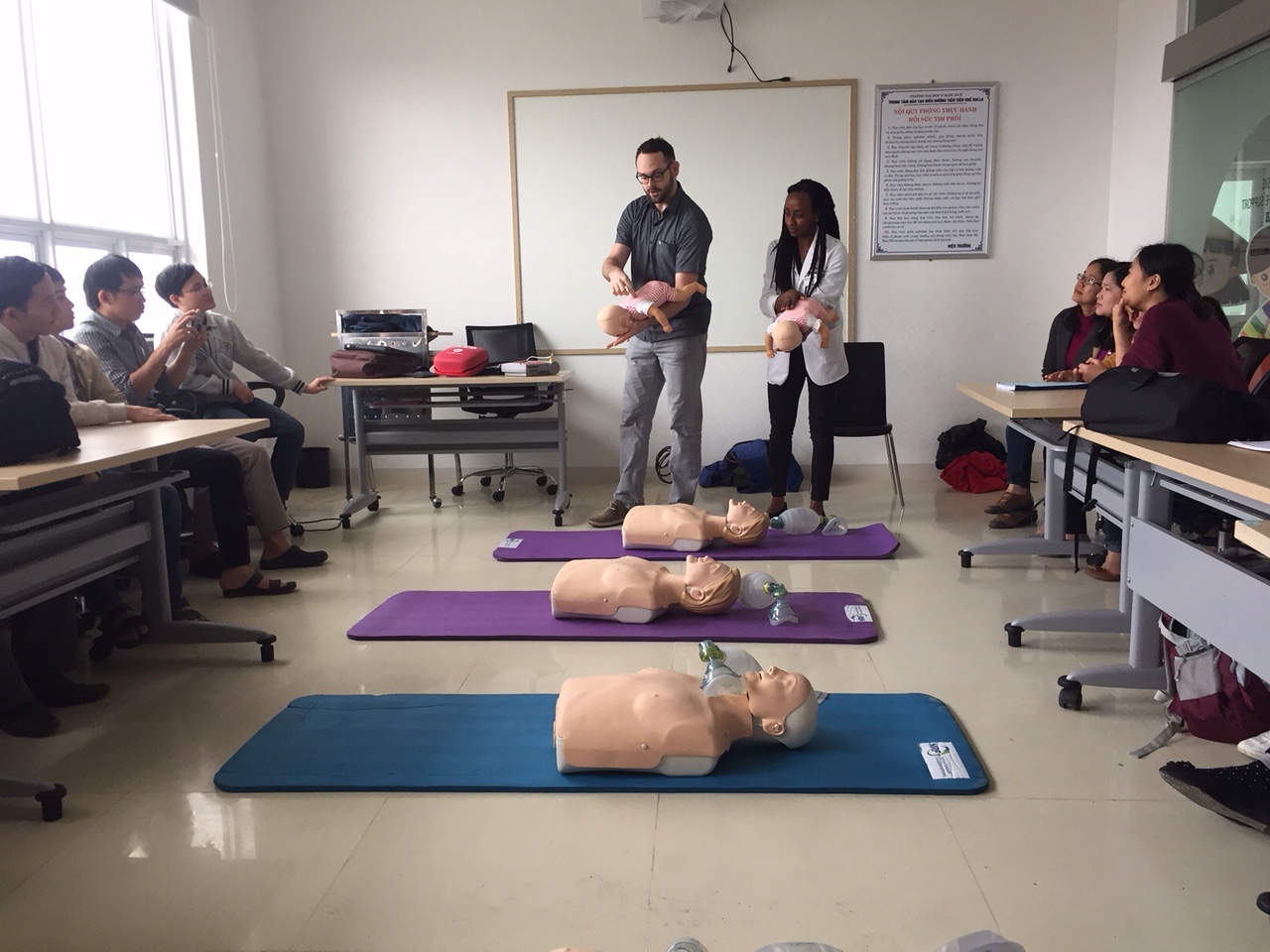
Description
The Society for Education in Anesthesia (SEA) and Health Volunteers Overseas (HVO) Traveling Fellowship is an opportunity for CA-3 anesthesia residents to spend four weeks teaching and learning at an HVO anesthesia education site in a low-resource setting.
The fellowship is grounded in the simple but lasting idea that teaching is the most powerful way to strengthen global anesthesia care and improve patient safety. Each year, selected residents join colleagues in countries such as Rwanda, Uganda, and Vietnam, working alongside local anesthesiologists, anesthesia providers, residents, and nurses. The focus is on education, sharing knowledge, demonstrating safe and adaptable practices, and helping build local teaching capacity that endures long after the rotation ends.
Fellows often describe the experience as transformative. Having been a fellow myself, I can say it was one of the most meaningful and educational months of my residency. A typical day may include OR and ICU rounds, didactic lectures, PBLDs, or observation and teaching in the operating room. The day is full of constant bidirectional learning and cultural immersion. The work is collaborative, deeply human, and often humbling. Fellows learn as much from their hosts as they teach, developing flexibility, cultural awareness, and a renewed appreciation for resourceful, patient-centered care.
Residents must apply during their CA-2 year to travel in their CA-3 year. They may choose from several approved HVO sites depending on timing and availability. Travel arrangements are administered by HVO, and since the experience is considered a clinical rotation outside the primary program, participants should obtain approval from their home institution, program director, and the ABA Credentials Committee as needed. Because this is an outside rotation it should normally be completed prior to the last three months of residency. Two days on either end of the rotation may be taken as travel days; otherwise residents are expected to be teaching on site all days that have been agreed upon by their program and HVO site.
Though only four weeks long, the SEA–HVO Fellowship leaves a lasting impact. Fellows return home with a renewed sense of purpose, energized by their global colleagues, and united by the shared goal of expanding access to safe anesthesia through education.
(Revised by: Rebecca Piland, MD 10/2025)

2025 SEA-HVO Traveling Fellowship Recipients with some of the members from Global Outreach Committee
How to Apply
How to Donate
Resources
Educational Objectives
- Medical Knowledge: Residents must learn and practice teaching skills. In order to teach well they will need to know their subject matter thoroughly. Residents will need to acquire knowledge of local surgical pathologies, medical illnesses, and anesthesia techniques. They will learn to be adaptable to the locally expressed training needs and creative while teaching in unique and often challenging environments. Residents must understand issues related to their own health and safety in a foreign country.
- Patient Care: Residents must be able to teach and demonstrate patient care that is compassionate, appropriate, and effective for the treatment of health problems, some of which may be uncommon in the US. The resources of the health care environment may be limited.
- Interpersonal and Communication Skills: Residents must demonstrate interpersonal and communication skills that result in effective and culturally appropriate information exchange with their students, colleagues and patients. They must learn the importance of relationship building, collaboration and support of local “advocates” for the success of international programs.
- Professionalism: Residents must demonstrate a commitment to carrying out professional responsibilities, adherence to ethical principles, and culturally appropriate behavior. Residents should strive to serve as good role models and act as medical “diplomats.”
- Practice-based Learning and Improvement: Residents must be able to self-educate, evaluate and readjust their teaching as they practice and get feedback during their rotation overseas.
- Systems-Based Practice: Residents must demonstrate an awareness of and interest in the way optimal care of patients fits into the larger context of the health care system of the country in which they are visiting.

Bushra Taha and Travis Reece-Nguyen Teaching ACLS in Hué Vietnam
|